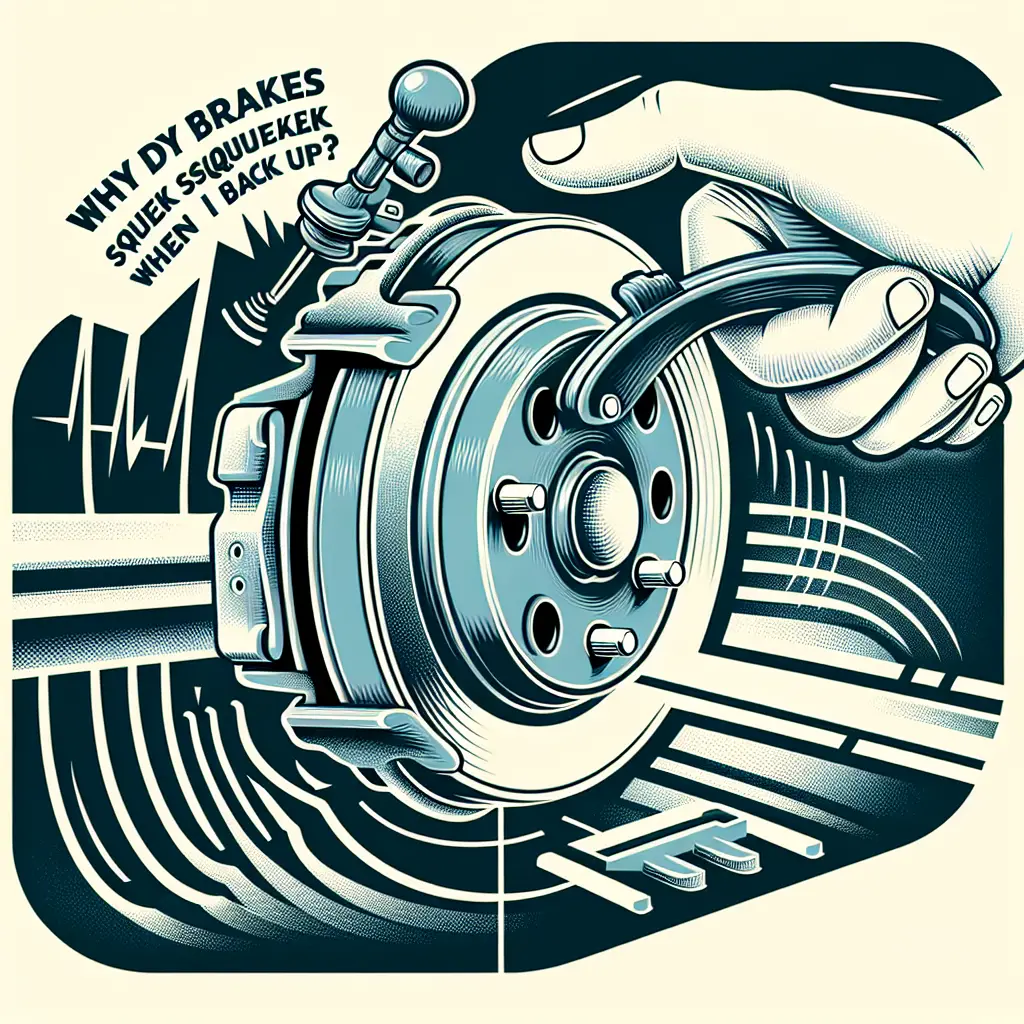Title: Why Do My Brakes Squeak When I Back Up?
Are you experiencing the high-pitched annoyance of squeaky brakes every time you throw your car into reverse? It’s a common issue that puzzles many drivers, but it’s often the car’s way of saying that it needs a little TLC. In this comprehensive guide, we’re diving into the curious case of squeaking brakes, specifically when backing up, and what it means for the health of your vehicle.
Before we get into the nitty-gritty, it’s important to note that brakes are a critical safety feature which you should never overlook. Ignoring suspicious noises can sometimes lead to bigger, costlier problems down the road—literally and figuratively.
Understanding Brake Noises
Brakes can make an array of sounds for various reasons. The occasional squeak or squeal during vehicle startup or in specific weather conditions might not be uncommon. Moisture buildup from rain or condensation can form a thin layer of rust on the brake rotors, which creates a squeaking noise when the pads scruff the rust off as they press against the rotors. Typically, this isn’t a cause for alarm.
The Culprits Behind Brake Squeaking When Backing Up
- Worn Brake Pads: The most common culprit behind squeaky brakes is worn brake pads. Certain brake pads feature small metal wear indicators that make a squealing sound as an alert that the pads are nearing the end of their service life.
-
Dust and Debris: Debris caught between the brake pad and the rotor can cause a squeaking or grinding noise. Regular cleaning and maintenance are recommended to prevent this issue.
-
High-Metallic Brake Pads: Some brake pads are made with a high metal content and can be noisier than ceramic or organic pads. The metal particles can rub against the rotor and cause a squealing sound, especially noticeable when reversing.
-
Lack of Lubrication: Components in the brake system require appropriate lubrication to function smoothly. If key areas such as the caliper pins are not adequately lubricated, it could lead to squeaking noises.
-
Rust: If your car has been sitting idle, especially in humid environments, rust can develop on the brake rotors. When backing up for the first few times after being stationary, the brakes may squeak until the surface rust is cleared.
Now that we’ve skimmed the surface of potential causes let’s dive deeper into each one.
Worn Brake Pads
The braking system is designed to alert you of worn-out pads. When they have reached their minimum thickness, the wear indicators – small metal tabs – start to make contact with the brake rotors, resulting in a squeak that demands your attention. If you hear this sound, it’s a clear sign that your brake pads need checking and likely replacing. Ignoring it could lead to rotor damage, which is a more expensive fix. The Car Care Council provides valuable resources concerning regular vehicle maintenance and care, including brakes.
Dust and Debris
Small stones or a buildup of road grime can sometimes wedge themselves in the brake system, causing scraping or squeaking. While often it’s just unsettling noise, it’s always best to inspect and remove any foreign objects as they can cause uneven wear or damage to the brake components.
High-Metallic Brake Pads
Your brake pads might be inherently noisy due to their composition. High-metallic pads can provide excellent stopping power but at the cost of being louder. If the noise is too disruptive, consider switching to a quieter pad type, such as ceramic.
Lack of Lubrication
The brake mechanism incorporates various moving parts. All these require lubrication to prevent noises and ensure a full range of motion. During routine brake service, the mechanic should apply lubricant to the caliper slides and contact points. Neglecting this can lead to noise when braking in reverse when the caliper dynamics are slightly different.
Rust
After a car has been left out in damp conditions or unused for extended periods, the brake rotors can acquire a layer of rust. The first few times you brake, particularly in reverse, you may hear the squeaking of the pads clearing this rust off. If this is the case, the noise should dissipate after a few brake applications. However, excessive rust can cause damage, so it’s best to ensure the vehicle is stored properly and used regularly to avoid this issue.
When to Visit a Mechanic
If the squeaking persists, it’s time to consult a professional. They can identify if there’s a more serious issue at play, such as alignment problems or hydraulic issues in the braking system. Regular brake inspections and servicing should be a part of your vehicle maintenance routine, as brakes are not only pivotal in vehicle control but also in ensuring safety on the road.
Conclusion
A squeaking noise when backing up can be a symptom of several factors concerning your vehicle’s brake system. It’s commonly not a sign of imminent danger, yet it’s wise to address brake noises early to avoid any risk or further damage. Remember, effective brakes are key to safe driving, so regular checks and maintenance are vital for any vehicle owner.
If your brakes squeak consistently, and especially if the noise occurs while driving forward as well, don’t delay in getting an inspection. It could save you not only from future repair bills but also from a potential accident. Safe driving starts with well-maintained brakes; ensure yours are in tip-top shape.
Remember, the internet is a valuable resource, but it cannot replace the hands-on assessment of a licensed mechanic. So, if you’re in doubt, roll into your local auto repair shop and let a pro take a look.
The next time you reverse and hear that familiar squeak, it might not just be an annoyance—it might be your car’s way of asking for a little attention. Listen to your vehicle, and don’t ignore what it’s trying to tell you, because the cost of overlooking a squeak can be much more than just the noise.

